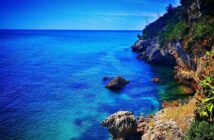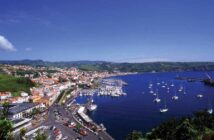- “Sugar Cane Alley” (1983) – This critically acclaimed film, directed by Euzhan Palcy, is set in 1930s Martinique and follows the life of a young orphan named José. It explores the socio-economic challenges and racial tensions of the time.
- “The Widow of Saint-Pierre” (2000) – Directed by Patrice Leconte, this historical drama is set in the mid-19th century on the island of Martinique. It tells a love story against the backdrop of a small community dealing with the aftermath of a murder.
- “Soleil Ô” (1970) – Directed by Med Hondo, this groundbreaking film portrays the experiences of a black immigrant in Europe and incorporates scenes set in Martinique. It delves into themes of racism, identity, and colonialism.
- “The Rum Diary” (2011) – While not entirely set in Martinique, this film adaptation of Hunter S. Thompson’s novel includes scenes filmed on the island. Starring Johnny Depp, it follows the misadventures of an American journalist in the 1950s Caribbean.
- “The Mad Adventures of ‘Rabbi’ Jacob” (1973) – Although primarily set in France, this popular French comedy directed by Gérard Oury features a memorable sequence set in Martinique. It centres around the comedic mishaps of a conservative businessman and a fake rabbi.
- “The Wretched of the Earth” by Frantz Fanon: Although not a fictional novel, this seminal work explores the psychological and sociopolitical impact of colonisation on the people of Martinique and other colonised societies.
- “The Black Jacobins” by C.L.R. James: Another non-fiction book, “The Black Jacobins” documents the Haitian Revolution, which had a significant impact on Martinique. It delves into the struggle for freedom and the abolition of slavery in the Caribbean.
- “A Season in Rihata” by Maryse Condé: This powerful novel captures the complex dynamics of race, class, and power in the postcolonial society of Martinique. It follows the lives of two women from different backgrounds who navigate the challenges of their environment.
- “Une vie de Joseph Roussel” by Patrick Chamoiseau: Chamoiseau is a prominent Martinican writer and this novel paints a compelling portrait of life on the island during the 20th century. It explores the experiences of a fictional character named Joseph Roussel and reflects on the history and cultural identity of Martinique.
- “The Batouala” by René Maran: Although originally from neighbouring French Equatorial Africa, René Maran’s novel, which won the Prix Goncourt in 1921, offers an insightful perspective on racism and colonialism. It resonates with Caribbean experiences and highlights issues faced by Martinican society.
WANDERLIST: Martinique in books and on film
0
Share.




